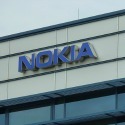
As operators around the world race to roll out new 5G networks, maintaining sustainability goals is very much on their minds.
Indeed, the ongoing COVID-19 pandemic has placed the climate crisis into sharp focus, and governments and companies are being called on to perpetuate the unplanned environmental benefits brought by lockdowns.
In terms of 5G, Nokia said its liquid cooling basestation technology helped Finish mobile operator Elisa reduce potential site energy costs and CO2 emissions at its Helsinki site by 30% and 80% respectively. Nokia claims to be the only telecom equipment vendor to offer the technology across 2G, 3G, 4G and 5G networks, and is now delivering liquid cooling with the Nokia 5G AirScale basestation.
According to Nokia, "this is the first time a commercial 5G liquid cooling solution has been deployed anywhere in the world." Liquid cooled sites are said to be silent, require zero maintenance, and can be 50% smaller and 30% lighter than standard active air conditioning units. "They offer operators and owners of basestation sites significant savings and potentially longer basestation component life," the vendor added.
Both Elisa and Nokia have set out environmental targets, with the vendor aiming to decrease emissions from its operations by 41% by 2030 and the operator planning to be carbon neutral at the end of 2020. Nokia has also committed to "recalibrate its existing science-based climate targets in line with the 1.5°C warming scenario," as backed by the United Nations.
Want to know more about 5G? Check out our dedicated 5G content channel here on Light Reading.
Other operators are also setting out their ambitions to be greener in the future. UK-based BT just unveiled two new initiatives to help tackle climate change, for instance, and France's Orange was ranked among 179 companies recognized by the Carbon Disclosure Project (CDP) for their actions on climate risks. (See BT sets out green ambitions post COVID-19 and Orange trumpets its green credentials.)
However, the industry will need to do much more amid rampant data consumption and increased investments in data centers. Welcome as these initiatives may be, they are probably only scratching the surface. (See Data tsunami is environmental disaster in the making.)
Related posts:
— Anne Morris, contributing editor, special to Light Reading
Read more about:
EuropeAbout the Author(s)
You May Also Like


.jpeg?width=300&auto=webp&quality=80&disable=upscale)








